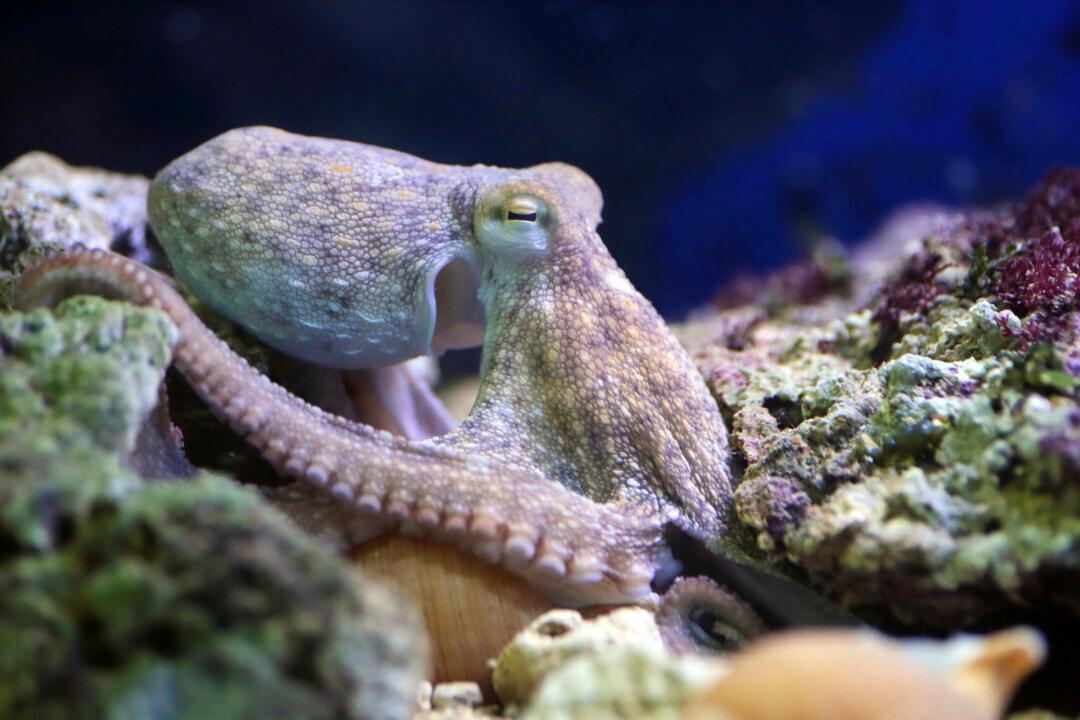While many species of marine life are facing an unprecedented decline in population, one group of underwater critters are seeing a global increase.
Cephalopods—octopus, squid, and cuttlefish—are thriving. A study published on May 23 in Current Biology indicates that since 1953, the number of cephalopods has increased.
The paper’s lead author, Dr Zoë Doubleday, noted that cephalopods are often called “weeds of the sea.”
Doubleday, a research fellow at the University of Adelaide, said: “They have a unique set of biological traits, including rapid growth, short lifespans, and flexible development.”

This image shows a possible new species of octopus. NOAA Office of Ocean Exploration and Research, Hohonu Moana 2016 via AP




